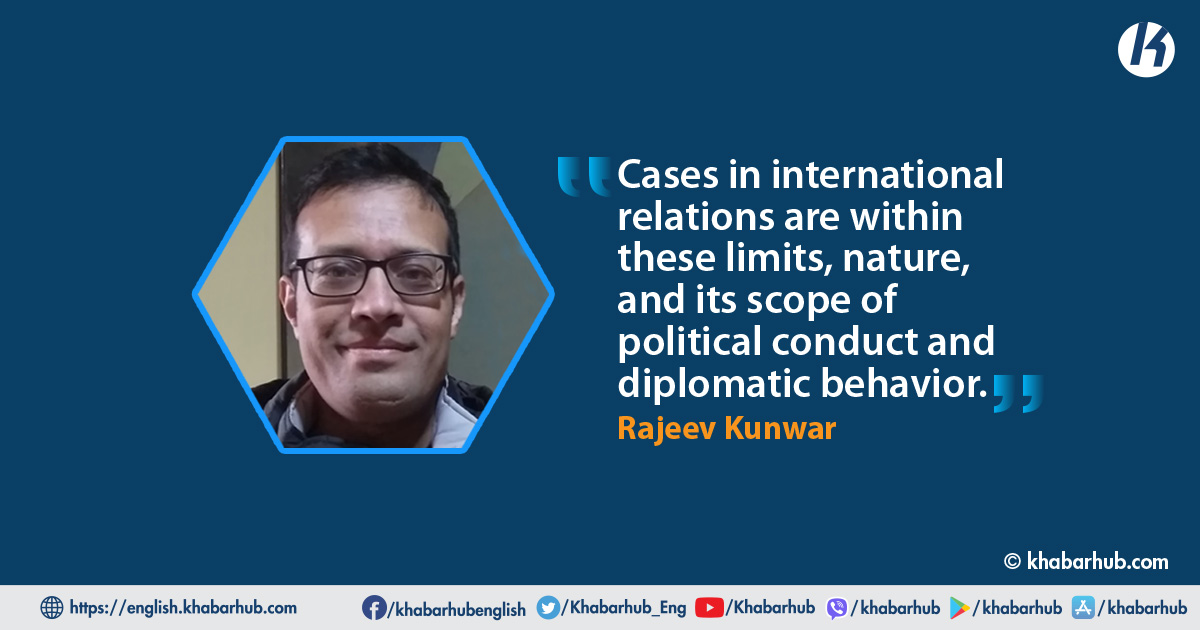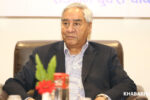In recent times warring activities or high-sounding precipice of warfare erupted in the Eurasian Theater of Ukraine. Geopolitics is the center of focus in international relations due to the rise of emerging powers or assertiveness of regional powers or large powerful states in international power politics.
High politics or hard powers are getting attention to strategic steps, mobilization, and marathon summitry talking of USA, European Powers and Russia about a geopolitically vulnerable erstwhile the Soviet Republic of Ukraine.
Ukraine is a miniature of Russia in sectors of manufacturing heavy industries – military and civilian. Russia considers Eurasian countries as its pivot where its sphere of influence is and would be undeterred. In the case of powers, conflict and cooperation in international relations, such salient features never cool down or wither away.
The Transatlantic community in the meantime spread a coalition of like-minded countries in Eastern Europe and Eurasia to promote democracy, liberalism and the fold of democratic community so that liberal and democratic peace gets traction.
Russia is apprehensive of these political, economic and strategic templates that challenge its authoritarian regime and a stronghold of nostalgic days in the former geographical landscape in the Eurasian Theater.
Russia’s concern of the North Atlantic Treaty Organization (NATO) embracing the ex-Russian Republics perceives endangering its national security, national integrity and national welfare may be true or may be unfounded.
Russians think in this perception while the Transatlantic Community wants to complete and compleat European norms and values in its union project to cover the continent.
Some politics evade complete involvement in domestic affairs. Others indulge in worldly affairs. Some political societies continue the state of affairs, and some policies are interlocked in perpetual conflict.
The European Community meanwhile exercises dialogue, diplomacy, and deliberations democratically with the Russian Federation to resolve disputes or strategic anxiety amicably.
Europe is dependent on Russian energy security and bilateral rapprochement is the best deal it wants. Therefore, the European approach for many reasons in its mutual relations is subtly different from American bellicosity in the Eurasian Theater that is distant from the American homeland.
Europe’s proximity to the Russian heartland creates a compulsion to negotiate and bargain to assuage tensions and angst when a political and diplomatic situation is not conducive or when strategic pressure unfolds.
Ukraine is in the middle of pressures and pulls of great power politics that are getting the widespread attention of diplomats and statespersons.
Warlike military movements signal strategic pressure build-up to conform “renegade” states to great power fold, and regional powers to comprehend and resolve mutual and reciprocal challenges and threats of national and international interests of security and welfare.
Diplomacy is such an art and science to pursue to de-escalate belligerent temperament. Coercion, as well as persuasion, is a mixture of might and right, and a recipe of realism and moralism/idealism in ethical foreign and security policy.
Furthermore, liberal realism in international relations can be defined in this way to the hybridization of objective and subjective conditions wherein reality and ideals are jumbled up to grapple with geopolitical issues resurfacing in this case since the 2014 Crimean annexation of Ukraine by Russia.
How to bring this situation under control? Who can provide a formidable balance of power politics and which international agencies keep this warmongering to subdue and pacify erupting conflict? Is it not the question of fixing the democratic paradox?
How can we achieve liberal peace and democratic peace? Some countries are at the frontlines of peace compact and others are unsettled in the age of unpeace.
Some national societies are in the middle of the age of anger whereas some political societies are embroiled amid the age of fury or populist conflagration.
What are the pathways of the world in reorder? There are questions about this stuff of international politics. And there are responses and answers within our reservoir of ideas – old and new.
Conflict hotspots are in every region of the globe. Some geopolitical theater has prime importance to a military, strategic, political, economic, and societal sphere. Some geopolitical contests are a manifestation of cold and long peace, and some rivalries are turning into short peace and raging hot wars.
International relations experts can give a missive of theoretical or purpose and power of principles in this conundrum. Issues matter and problems troubleshoot.
Some politics evade complete involvement in domestic affairs. Others indulge in worldly affairs. Some political societies continue the state of affairs, and some policies are interlocked in perpetual conflict.
Thus, public and international affairs – inside/out and outside/in are intertwining and interweaving to culminate in an intricate web of relationships no one can untie. In this backdrop of nexus in politics and international relations, the 21st-century epoch is getting to be seen with interesting phenomena underlining the state’s existence and survival.
A whole gamut of domestic and international is overlapping given the global state of nature selecting sometimes particular tack and choosing at times universal policy choices and options.
Ukraine is in a predicament of politics and diplomacy to navigate democracy, European identity and Russian roots. So does in many Eurasian countries in the sphere of influence wherein the transatlantic community and the Russian Federation encounter.
This is a normal event unfolding abnormal dimensions of checks, balances and control of international power politics.
In an uneasy retrospect and balanced perspective, the Eurasian theater is an arena where great Eurasian powers interface, exchange and interact to settle scores of politics, economy, and democratic culture.
International relations experts can give a missive of theoretical or purpose and power of principles in this conundrum. Issues matter and problems troubleshoot.
But the essence of diplomacy to manage ad hoc surfacing of conflict needs astute skill to continue pursuing a project of regionalization or the spirit of continentalism in the terms and condition of sovereignty, interdependence, solidarity and a coalition of interests.
Nationalism and internationalism are inherent in the implicit or explicit mindscapes of world citizens. So, cases in international relations are within these limits, nature, and its scope of political conduct and diplomatic behavior.









Comment